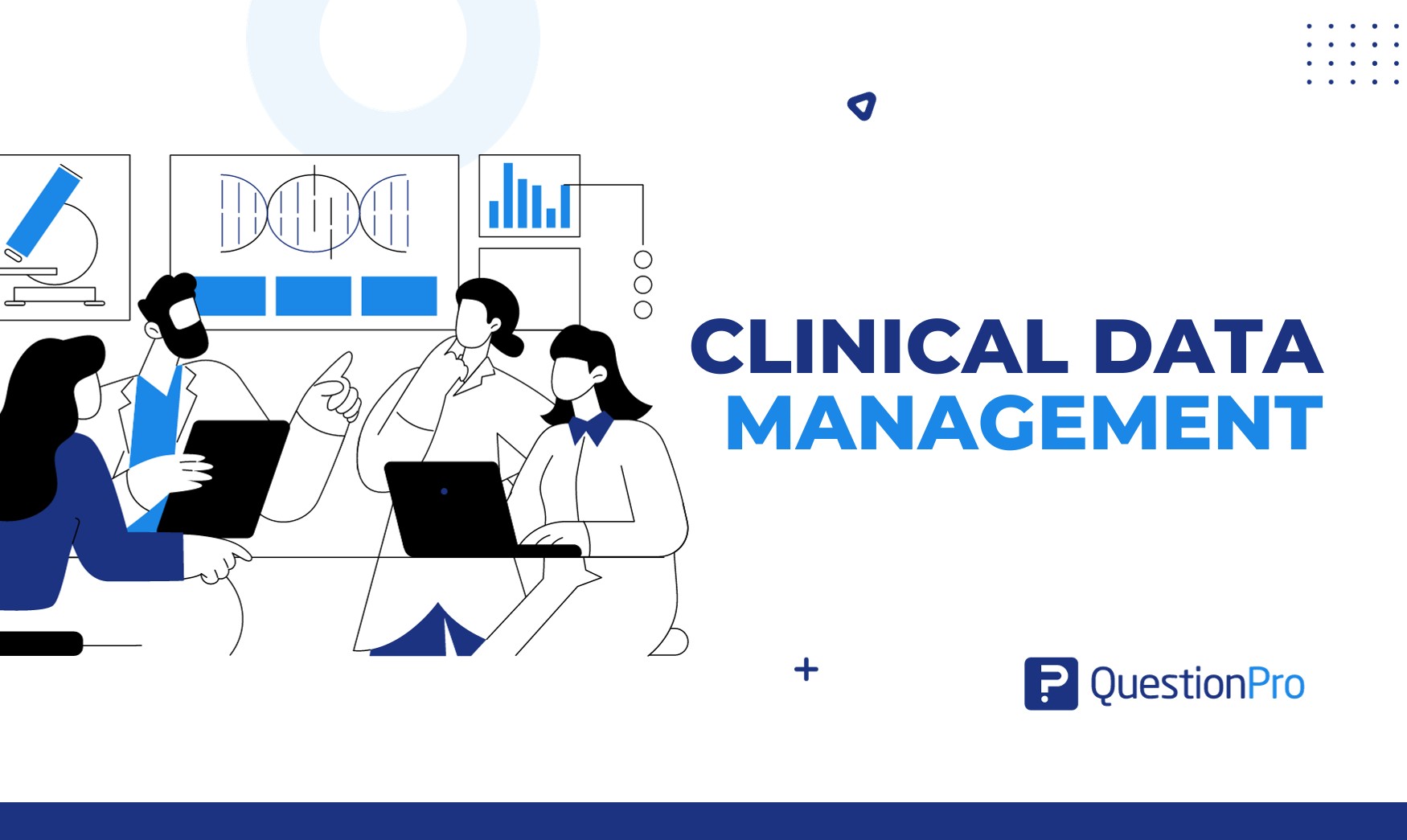
Clinical Data Management (CDM) is a vital aspect of the healthcare and pharmaceutical industry that plays a pivotal role in ensuring clinical trial data’s integrity, accuracy, and reliability.
As technology advances, the need for effective data management becomes increasingly apparent. In this blog, we’ll dive into what Clinical Data Management is, explore its key stages, and discuss the essential tools that contribute to its success.
What is Clinical Data Management?
Clinical Data Management involves collecting, integrating, and validating data obtained from clinical trials and research studies. Its primary objective is to maintain the quality and integrity of clinical data, ensuring that it meets regulatory standards and can be analyzed accurately to draw meaningful conclusions.
The clinical data manager oversees the meticulous organization, validation, and secure storage of research data, ensuring the highest standards of quality and integrity in clinical data management. CDM encompasses various activities, from data collection and entry to database design, quality control, and data archiving.
Importance of Clinical Data Management
Clinical Data Management (CDM) is a critical component of the clinical research process, playing a key role in ensuring the integrity, accuracy, and reliability of data collected during clinical trials.
The importance of Clinical Data Management can be highlighted in several aspects:
Data Accuracy and Quality
CDM ensures that the data collected in clinical trials are accurate, reliable, and of high quality. This is crucial for drawing valid conclusions and making informed decisions about the safety and efficacy of investigational drugs or medical devices.
Compliance with Regulatory Standards
Regulatory agencies, such as the U.S. Food and Drug Administration (FDA) and the European Medicines Agency (EMA), have stringent requirements for collecting, managing, and reporting clinical trial data. CDM practices help ensure that data comply with these regulatory standards, facilitating the approval process for new treatments.
Patient Safety
Accurate and reliable data are essential for monitoring patient safety during clinical trials. Identifying and addressing adverse events promptly is crucial to protecting the well-being of study participants.
Efficient Data Collection and Entry
CDM involves the development of standardized data collection methods and electronic data capture (EDC) systems. This promotes efficient and consistent data entry, reducing the likelihood of errors associated with manual data transcription.
Data Security and Confidentiality
Patient data collected during clinical trials are highly sensitive and confidential. CDM includes measures to ensure the security and privacy of this information, protecting the rights and well-being of study participants.
Data Traceability and Audit Trails
CDM establishes traceability of data changes through audit trails. This is essential for identifying and addressing any discrepancies or issues that may arise during the course of a clinical trial. Audit trails also support regulatory inspections.
Interoperability and Standardization
CDM promotes the use of standardized data formats and terminology, enhancing interoperability and facilitating data exchange between different systems and stakeholders. Standardization contributes to the consistency and comparability of data across multiple studies.
Facilitating Data Analysis and Reporting
Well-managed data are essential for meaningful statistical analysis and interpretation of study results. CDM ensures that data are organized in a way that supports efficient analysis and reporting, contributing to the overall success of a clinical trial.
Resource Optimization
Efficient data management practices help optimize resources by reducing the need for manual data verification and cleaning. This can lead to cost savings and a more streamlined clinical trial process.
Stages of Clinical Data Management
Clinical Data Management (CDM) is a comprehensive process involving multiple key stages to ensure clinical trial data’s accuracy, integrity, and reliability. Each stage is crucial for maintaining high-quality data and complying with regulatory standards.
Here are the key stages of the Clinical Data Management process:
1. Protocol Development
The first stage involves the development of a detailed protocol outlining the objectives, design, methodology, and data collection methods for the clinical trial. This sets the foundation for data management activities throughout the study.
2. Data Collection
Once the protocol is established, data collection begins. This stage involves gathering information from various sources, including patient records, laboratory results, and other relevant data points. Ensuring the accuracy and completeness of data is critical at this stage.
3. Database Design and Setup
A well-structured database is essential for efficient data management. This stage involves designing a database that can handle the volume and complexity of the collected data. The database should be user-friendly and compliant with regulatory requirements.
4. Data Entry and Cleaning
Data entry involves transferring collected information into the database. Cleaning the data is a crucial step that includes identifying and correcting errors, inconsistencies, and missing values. This ensures that the data is of high quality and can be relied upon for analysis.
5. Quality Control and Assurance
Rigorous quality control measures are implemented to verify the data’s accuracy, consistency, and completeness. This stage involves data validation checks, discrepancy management, and ensuring adherence to standard operating procedures (SOPs).
6. Database Locking and Analysis
Once the data is cleaned and quality-checked, the database is locked to prevent further changes. The locked data is then subjected to statistical analysis to draw conclusions and generate meaningful insights.
7. Reporting and Submission
The final stage involves preparing comprehensive reports summarizing the study findings. These reports are submitted to regulatory authorities for approval and publication, contributing to the scientific knowledge base.
Essential Tools for Clinical Data Management
Clinical data management associations collect, organize, and manage data generated during clinical trials and studies. It is crucial in ensuring clinical data integrity, accuracy, and reliability. Here are some essential tools used in clinical data management:
Electronic Data Capture (EDC) Systems
EDC systems are crucial for collecting and managing clinical trial data electronically. These systems replace traditional paper-based data collection methods, providing a more efficient and accurate way to capture, monitor, and manage data.
Clinical Trial Management System (CTMS) and Clinical Data Management System (CDMS)
CTMS helps in planning, tracking, and managing the operational aspects of clinical trials. It includes features for study planning, site selection, patient recruitment, and monitoring of trial progress.
Clinical data management systems are specialized software systems designed to manage clinical trial data. It facilitates data collection, validation, cleaning, and reporting. CDMS tools help maintain data quality and compliance with regulatory standards.
Randomization and Trial Supply Management (RTSM) Systems
These systems help randomize patients to different treatment groups and manage the supply of investigational drugs or devices during a clinical trial. They ensure proper blinding and allocation of treatments.
Electronic Patient Reported Outcomes (ePRO) Systems
ePRO systems allow patients to enter their health-related data into electronic devices directly. This helps in collecting patient-reported outcomes in real-time, reducing data entry errors and improving data accuracy.
Clinical Data Warehousing and Analytics
Data warehouses store and organize large volumes of clinical trial data, making it accessible for analysis. Analytics tools help researchers derive insights from the data, identify trends, and make informed decisions.
Regulatory Compliance Tools
Tools that assist in maintaining compliance with regulatory requirements and standards, such as 21 CFR Part 11, which defines the criteria under which electronic records and signatures are considered trustworthy, reliable, and equivalent to paper records.
Risk-Based Monitoring (RBM) Tools
RBM tools help in identifying and managing risks in clinical trials. They use a risk-based approach to focus monitoring activities on critical data and processes, improving the efficiency of trial monitoring.
Data Encryption and Security Tools
Given the sensitivity of clinical trial data, tools that ensure data security through encryption, access controls, and other security measures are essential to protect patient confidentiality and trial integrity.
Conclusion
Clinical Data Management is a critical component of the clinical trial process, ensuring that the data collected is of the highest quality and integrity. The key stages, from protocol development to reporting and submission, involve meticulous planning, execution, and validation.
Leveraging advanced tools and systems enhances the efficiency and accuracy of CDM processes, contributing to the success of clinical trials and the advancement of medical knowledge.
As technology continues to evolve, the clinical data management plan field will undoubtedly play an increasingly vital role in shaping the future of healthcare and pharmaceutical research.
QuestionPro is pivotal in Clinical Data Management by offering robust survey and research tools. Its user-friendly interface streamlines data collection, ensuring accuracy and efficiency.
Clinical data managers play a crucial role in overseeing and maintaining the integrity of healthcare information, utilizing tools like QuestionPro to streamline and enhance clinical data management processes.
With advanced secure data storage and analysis features, QuestionPro empowers researchers to gather and manage clinical data seamlessly, enhancing overall study effectiveness.







